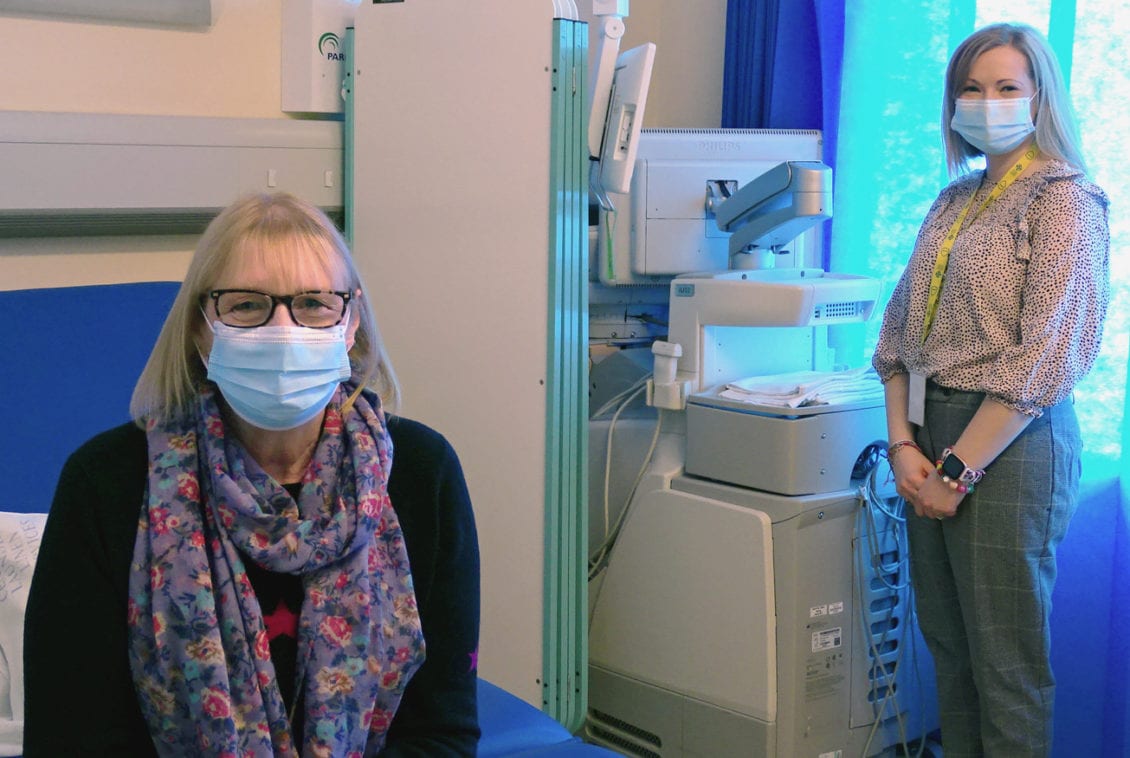Calls to a helpline run by a Swansea Bay service have fallen dramatically as patients can now find out what they need to know for themselves.
The Swansea Bay Patient Portal is a secure online record that allows people to view their blood test results and clinical documents, as well as being able to tap into a library of information and resources.
They can do this via their mobile phone, tablet, or other devices. They can also update their health data and sync with wearable tech like Fitbits.
As family members and carers have an important role, the system allows them to help manage the care, with the patient’s permission.
Blood results and clinical documents can be viewed and shared not only with relatives but clinicians and professionals anywhere in the UK.
It can help reduce paperwork and unnecessary GP correspondence, and within some services it also allows clinicians to free up more clinic time for other patients.
The Swansea Bay Patient Portal (SBPP), powered by Patient Knows Best, is now live in 22 services, with almost 3,000 patients registered.
One of the services is rheumatology, which has really embraced the portal and plans to invite all its 4,500 follow-up patients to register – with around 613 having done so already.
As a first step they can check their blood test results using the SBPP. However, patients who are on disease modifying drugs can use the portal to message the rheumatology team securely as well.
They also have access to the booking office and nurse specialists who provide advice, manage repeat medication prescriptions and answer any appointment queries.
Cynthia Rees, from Swansea, is among those using this enhanced access, which she said had given her the ability to self-manage her condition.
“Having access to my blood results has made such a difference as it’s allowing me to plan my daily life around my condition.
“If I’ve needed help with my pain, the patient portal allows me to send a secure message and I’ve had a prompt response from the nurse specialist and the appointment team.
“The information in the library regarding my condition is also really helpful.”
Eventually all rheumatology patients will have the same level of access once they have signed up for the SBPP.
Already, though, it has led to a 75 per cent reduction in calls to the service’s advice line from patients with queries regarding their appointments or blood results.
This has freed up capacity so the team can respond more quickly to telephone calls on the advice line, including some in relation to Covid-19. Feedback from patients has been positive.
Rheumatology Service Support Manager Paula Phillips has been instrumental in the roll-out of SBPP there – one of the many innovations introduced to improve the service for patients.
Paula said: “A large proportion of telephone calls from patients were in relation to their blood results.
“Giving them access to their results through the SBPP has shown a reduction in telephone calls into the department.
“It has also provided benefits to staff. Communication has been improved by using the portal’s secure messaging feature.
“This has allowed staff to respond to queries promptly. There is also a written record of the communication.”
Dr Martin Bevan, Group Medical Director for Neath Port Talbot and Singleton hospitals, said the introduction of SBPP had allowed rheumatology to work differently and make the best use of resources.
“We have listened to our patients who have told us they want to feel empowered to manage their conditions,” he added.
“Enabling patients to access to their blood results is the first step in doing this.
“In future they will be able to access letters and key members of staff to help them manage their conditions when they need advice and support.
“Coproduction of services with our patients is important to us and vital for delivering safe effective quality care.
“SBPP improves the ability of patients to be involved in their own care and have a meaningful dialogue with their clinicians.”









Leave a Reply
View Comments